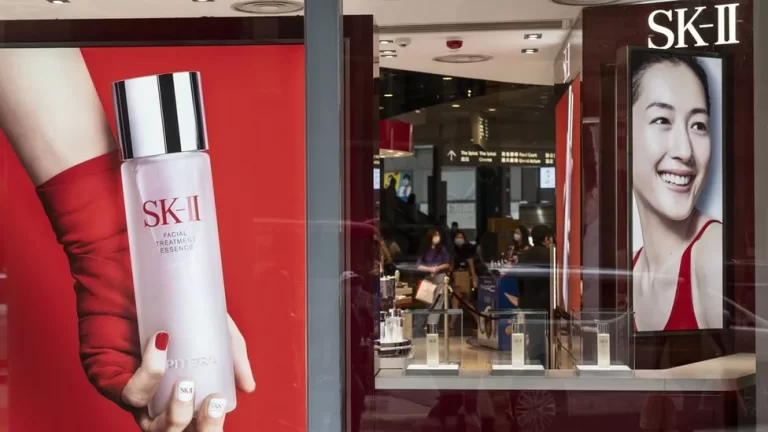Procter & Gamble has said sales of high-end SK-II skincare brand fell 34% between October and December.
In addition to China's slow recovery, the firm's executives blamed anti-Japanese sentiment. Last year, Japan started releasing treated radioactive water from its Fukushima nuclear power plant which was hit by a huge tsunami in 2011.
China opposed the move and banned all seafood imports from Japan, despite the UN's assurance of its safety.
Scientists also largely agree that the environmental impact of the treated water will be negligible but as disinformation fuelled fear and suspicion in China, consumers boycotted Japanese brands, including P&G's SK-II.
Rocks were also thrown at Japanese schools and hundreds of hostile phone calls were also made to businesses in Fukushima. But P&G executives said SK-II is already seeing sales turn around in recent months.
“Our consumer research indicates SK-II brand sentiment is improving, and we expect to see sequential improvement in the back half,” the company's chief financial officer, Andre Schulten, was quoted as saying on the company's earnings conference call.
This is not the first time SK-II or Japanese brands face a boycott in China. In 2012, a wave of anti-Japanese protests across China over a territorial dispute led to a halt in production at Japanese carmakers, Toyota, Honda and Nissan, whose showrooms were attacked.
Other Japanese companies affected included the electronics company Sony, fast fashion brand Uniqlo and the shopping chain stores Aeon. The islands, known as Senkaku in Japan and Diaoyu in China, are controlled by Japan but both China and Taiwan lay claim to them.
P&G's chief executive officer, Jon Moeller, said on the earnings call that previous tensions have also hurt SK-II's sales, but the brand always bounced back.
The company's overall earnings were mixed as the firm cut its annual profit forecast due to a one-off charge related to its Gillette business. But demand for the company's daily-use products, mainly in the grooming and home-care segments, remained strong despite high prices.
— CutC by bbc.com


